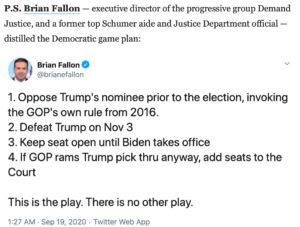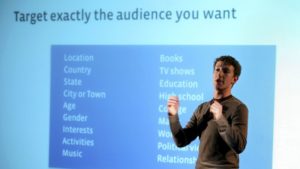If only…
Arles, July 2017.
Quote of the Day
”Writing a novel does not become easier with practice.”
- Graham Greene
Musical replacement for the morning’s radio news
John Field: Nocturne No. 10 in E minor
EU plans for controlling tech companies
Politico has obtained a leaked copy of measures that EU regulators are considering imposing on certain kinds of tech companies. Cory Doctorow has provided a neat annotated list on Pluralistic.net.
First of all, stuff that the EU is considering prohibiting:
-
Mining your customers’ data to compete with them or advertise to their customers (think: Facebook Like buttons on publisher pages, Amazon’s own-brand competitors)
-
Mixing third-party data with surveillance data you gather yourself (like Facebook buying credit bureaux data), without user permission (which is the same as never because no one in the world wants this)
-
Ranking your own offerings above your competitors (think: Google Shopping listings at the top of search results)
-
Pre-installing your own apps on devices (like Ios and Android do) or requiring third party device makers to install your apps (as Android does)
-
Using DRM [Digital Rights Management] or terms to service to prevent users from uninstalling preinstalled apps (no immortal shovelware)
-
Exclusivity deals – mobile OS/device companies can’t force an app vendor to sell only through the app, and not on the open web
-
Using DRM or terms of service to prevent sideloading
-
Nondisparagement/confidentiality clauses that would prevent your suppliers from complaining about your monopolistic behavior
-
Tying email to other services – you have to be able to activate an Android device without a Gmail account
-
Automatically logging users into one service on the basis that they’re logged into another one (eg using Gmail doesn’t automatically log you into Youtube)
Then there are projected new ‘requirements’ that companies will have to provide:
-
Annual transparency reports that make public the results of an EU-designed audit that assesses compliance
-
Annual algorithmic transparency reports that disclose a third-party audit of “customer profiling” and “cross-service tracking”
-
Compliance documents showing current practices, on demand by regulators
-
Advance notice of all mergers and acquisitions
-
An internal compliance officer who oversees the business
This is an interesting leak, not so much for the specific kinds of measures that they are contemplating, but as revealing the general conception of regulation that underpins EU thinking. In a way, it’s as if they are regarding tech companies much as we regard banks. That may work in some circs. But it may also reflect an inadequate conception of the power of tech companies.
The mystery of John Banville’s mysteries
Lovely essay in the NYT by Charles McGrath about John Banville and the background to his forthcoming novel Snow:
The Irish novelist John Banville is a famous perfectionist — the kind of writer who can spend a day on a single sentence. His books, most written in the first person, are lapidary, intricate, Nabokovian. Or just difficult, some readers have complained, more interested in style than in storytelling. They invariably come laden with words that seem meant to prove his vocabulary is bigger than yours: flocculent, crapulent, caducous, anaglypta, mephitic, velutinous.
A Banville novel typically takes four or five painful years to complete, after which the author is still dissatisfied. In a 2009 interview, he told The Paris Review that he hated his own books. “They’re an embarrassment and a deep source of shame,” he said, and then added: “They’re better than everybody else’s, of course, but not good enough for me.”
In March 2005, however, while staying at a friend’s house in Italy, Banville sat down one morning and for some reason began writing a mystery novel set in 1950s Dublin. By lunchtime he had 1,500 words — or a week’s worth at his usual pace. He thought to himself, “John Banville, you slut,” but kept going and finished in five or six months. “I was a little appalled at the speed with which I got the thing done,” he said in a recent email. He had been reading Simenon — though not the Inspector Maigret crime novels — and was inspired by him to see what could be accomplished with a narrow vocabulary and a spare, straightforward style.
Many years ago I wrote a few pieces for the Irish Times when Banville was the paper’s Literary Editor. The striking thing (to me) when dropping in copy was the way everybody referred to him as “Mr. Banville”. Even then he was just like his writing: fastidious, distant, intimidating. Looks like he hasn’t changed. But he’s a terrific writer, so he’s excused normality.
The NYT piece has a couple of terrific photographs of him, btw.
What Trump’s tax-returns tell us
Basically, that he’s incapable of running a business.
All of his casinos, property developments, etc. have been commercial disasters. The one thing that really worked for him was his spell on The Apprentice and the celebrity status that that gave him, which he then assiduously leveraged by endorsements and lending his name to various ventures. He earned a staggering amount from that alone. He then spent a lot of those earnings on buying hotels and 15 golf courses in various parts of the US and the world (including, as I now know, one in Ireland). But these are proper businesses and he can’t run such things, so some of them have been bleeding money over the years.
By 2016, his earnings from the celebrity glow of The Apprentice were declining rapidly (all celebrity has a half-life) and he had an urgent need to find a new way of rekindling it because of the losses on the golf and hotel businesses.
So here’s my idea for a comic novel based on these circumstances…
Trump’s big idea for reigniting his celebrity status was that running for president would be a way to do it. Think of all the free publicity. His name in lights every day on cable TV, etc. So he decided to run. The end-game would be that he could then start his own TV network — Trump TV — challenging Fox and Murdoch and becoming a new media mogul. The idea was not to be elected: even his narcissism didn’t make him think that he might succeed. The celebrity-enhancement flowing from the campaign was the goal. Trump didn’t actually want to be president: too much like hard work.
Far-fetched? Hey — this is a novel, remember. Pure fiction. No requirement to adhere to the facts.
But… Michael Lewis’s terrific book, The Fifth Risk: Undoing Democracy opens with the night of the election and the stunned astonishment in the Trump campaign team at what was unfolding. It was one long “Oh, shit!!!!!” Moment. The plan had backfired. They had actually won the election. Trump was going to have to be President!
Lewis points out that when Trump won the Republican nomination he was astonished and infuriated that he was now obliged, by law, to start forming a Transition Team to plan for forming an Administration. And he did everything in his power to hobble that process.
The New York Times’s exposé of his tax returns adds the final touch necessary for the plot of my comic novel. Their analysis suggests that Trump is now personally liable for something like $400m of debts for which he is the sole guarantor. The banks who are on the hook for that can’t touch him while he’s President. But if he loses…. Well, next stop the bankruptcy court, or worse. No wonder he’s desperate not to lost the election.
More on how to model (and explain) the spread of Covid-19
Further to my post yesterday about Zeynep Tufecki’s fascinating article on why focussing simply on R0, the reproduction rate for Covid-19 might be misleading because it misses the importance of ‘super-spreading’ events, Seb Schmoller pointed out a new research paper published by the Royal Society the other day which appears to support Tufecki’s line of argument.
Here’s the Abstract of the paper:
The basic reproduction number ℛ0 of the coronavirus disease 2019 has been estimated to range between 2 and 4. Here, we used an SEIR model that properly accounts for the distribution of the latent period and, based on empirical estimates of the doubling time in the near-exponential phases of epidemic progression in China, Italy, Spain, France, UK, Germany, Switzerland and New York State, we estimated that ℛ0 lies in the range 4.7–11.4. We explained this discrepancy by performing stochastic simulations of model dynamics in a population with a small proportion of super-spreaders. The simulations revealed two-phase dynamics, in which an initial phase of relatively slow epidemic progression diverts to a faster phase upon appearance of infectious super-spreaders. Early estimates obtained for this initial phase may suggest lower ℛ0.
The key sentence in the concluding section reads:
Spatial heterogeneity of the epidemic spread observed in many European countries, including Italy, Spain and Germany, can be associated with larger or smaller super-spreading events that initiated outbreaks in particular regions of these countries.
This is just the latest demonstration of how limited our understanding of this pandemic is — still. We’re learning as we go, but without a good understanding of the dynamics of infection and spread, we’re driving by looking in the rear-view mirror.
This blog is also available as a daily email. If you think this might suit you better, why not subscribe? One email a day, delivered to your inbox at 7am UK time. It’s free, and there’s a one-click unsubscribe if you decide that your inbox is full enough already!




